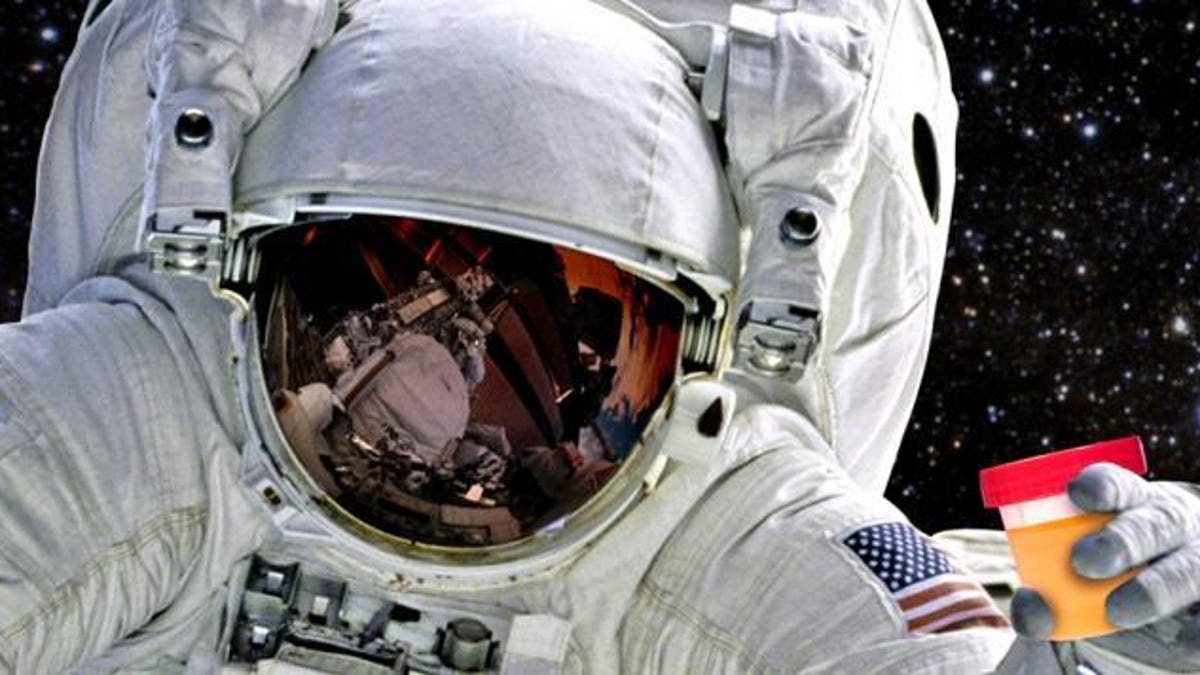Could astronauts make tools from pee during long space trips?
Traveling through space for long periods means reusing everything, right down to atoms -- even those in human waste.

You may've heard that astronauts on the International Space Station recycle their own pee into drinking water, but space travelers could also one day upcycle their own urine into tools and other useful items.
Researchers from Clemson University are exploring ways that strains of yeast can be used to convert nitrogen from urine and carbon dioxide from astronauts' breath (or perhaps the atmosphere of Mars) into useful substances like nutrients or polymers. One strain of engineered yeast creates polyester polymers that could be used in 3D printers to create needed tools or parts for a long space mission.
"If astronauts are going to make journeys that span several years, we'll need to find a way to reuse and recycle everything they bring with them," Mark A. Blenner, an assistant professor at Clemson's College of Engineering, Computing and Applied Sciences, said in a release. "Atom economy will become really important."
The researchers presented their work Tuesday at the 254th National Meeting & Exposition of the American Chemical Society (ACS) in Washington. ACS also produced the above video explaining how researchers used yeast and algae to demonstrate what could be the atomic recycling system of future starships.
Having "a biological system that astronauts can awaken from a dormant state" and start using to produce what they need, when they need it, is the project's motivation, Blenner said.
Given the recent debunking of a purported child slave colony on Mars, it's good to know there's a more reasonable and efficient option for manufacturing beyond Earth. I just hope using all that urine for tools instead of drinking water won't leave future astronauts too parched.
Technically Literate: Original works of short fiction with unique perspectives on tech, exclusively on CNET.
Crowd Control: A crowdsourced science fiction novel written by CNET readers.

